Repeal the Eighth: how have abortion services changed in Ireland five years on?
Report finds access is still limited and unequal, but proposed legislation changes may be delayed
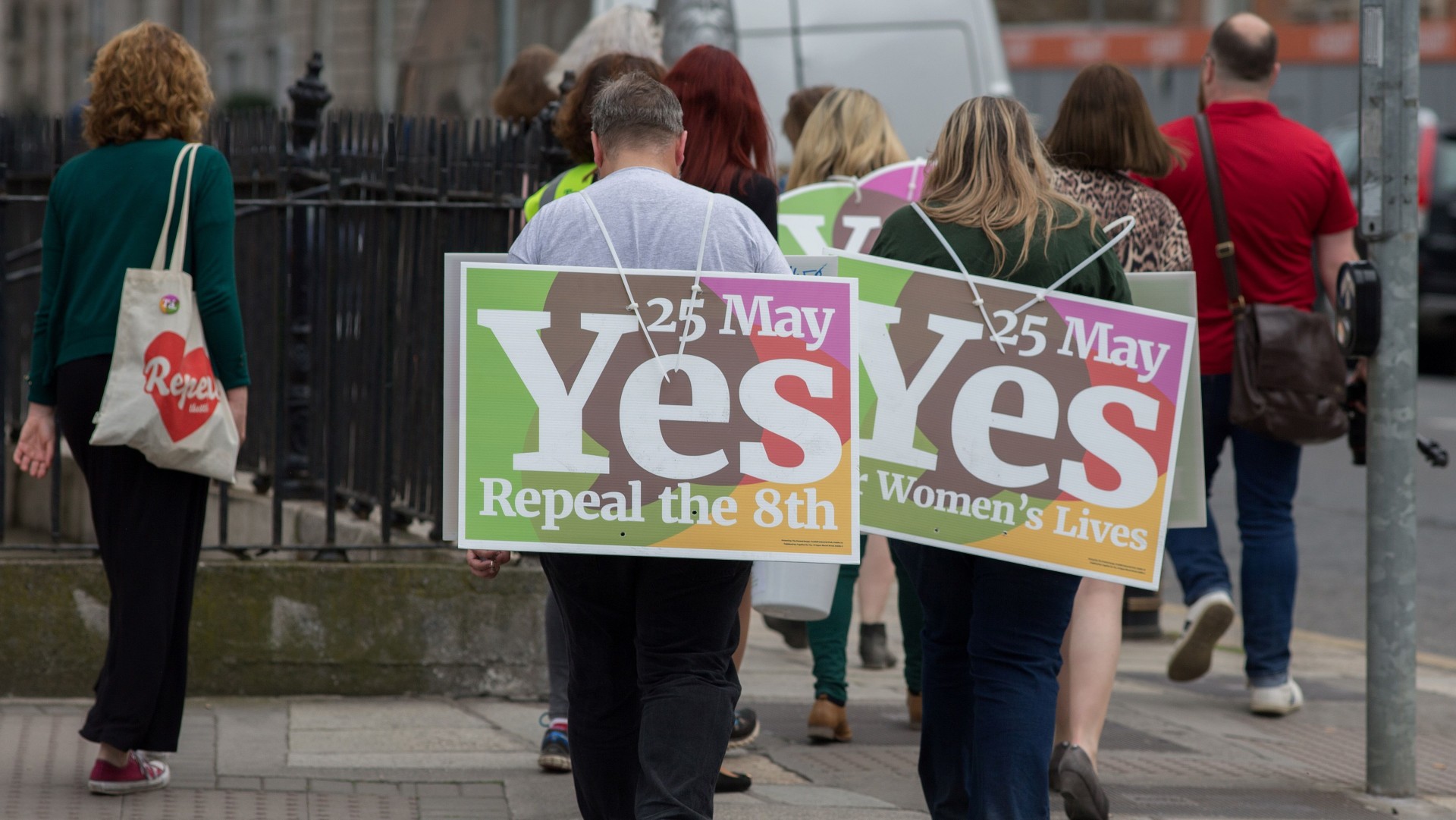
A free daily email with the biggest news stories of the day – and the best features from TheWeek.com
You are now subscribed
Your newsletter sign-up was successful
Five years ago this week, Ireland voted to repeal the Eighth Amendment to its constitution, which banned abortion except in cases of “real and substantial risk” to the woman’s life.
There were “scenes of jubilation” after the referendum on 26 May 2018, said CNN, with many women in Ireland seeing it as a “historic step”.
More than two million people voted, a record turnout for Irish referendums, with 66.4% in favour of removing the amendment. Within a few months, lawmakers legalised abortion in the first 12 weeks of pregnancy, or in cases of severe risk to the woman’s life, or when the foetus would not survive.
The Week
Escape your echo chamber. Get the facts behind the news, plus analysis from multiple perspectives.

Sign up for The Week's Free Newsletters
From our morning news briefing to a weekly Good News Newsletter, get the best of The Week delivered directly to your inbox.
From our morning news briefing to a weekly Good News Newsletter, get the best of The Week delivered directly to your inbox.
But campaigners, lawyers and charities say the system is failing a number of women each year, due to the law’s limitations.
Last month, an independent report “recommended sweeping changes to the existing law”, said The Irish Times, including the decriminalisation of doctors, the removal of the mandatory three-day waiting period to access medication, and a statutory obligation on healthcare workers “to refrain from providing misleading information”.
“Implementing post-Repeal abortion services has been challenging; the fact it happened remains astonishing,” wrote Trinity College Dublin’s Catherine Conlon and Dr Deirdre Duffy, authors of the report. “Repeal triggered a top-to-bottom reform in the health service,” they added. “The change in law had established women’s right to access high quality abortion care. Yet the legacy of the Eighth Amendment meant continued insecurity about provision, concerns about judgment and stigma.”
What did the papers say?
In 2021, more than 300 Irish women travelled to England for abortions, according to UK government data, which was a “large decrease” that may have been due to pandemic travel restrictions, said the report. “Many more” are forced to take abortion pills illegally, said TD of socialist party People Before Profit, Bríd Smith.
A free daily email with the biggest news stories of the day – and the best features from TheWeek.com
“We hear from someone in Ireland every three days,” said Abortion Support Network.
This week, People Before Profit proposed a bill in the Irish Dáil that would enact many of the report’s recommendations.
However, the government tabled a year-long amendment on it, which will “effectively stall its progress through the Oireachtas [Irish parliament] for 12 months”, The Irish Times said. A Government source told the paper that Minister for Health Stephen Donnelly needed time to fully address both the operational recommendations as well as legislative proposals.
“While the situation has vastly improved for women who seek to have an abortion”, said The Journal, “more must be done to fix the problems within the legislation”.
In nine out of 26 Irish counties, there were fewer than five registered providers, the report found. GPs and clinics will only provide abortion care until nine weeks, after which abortion must take place in a maternity hospital. Only 11 out of 19 maternity facilities in the country are providing abortions, it said.
The law also allows medical practitioners to refuse to perform abortion due to “conscientious objection”, and there is no formal abortion training on Ireland’s medical school curriculum.
Smith’s proposed bill recommended extending the 12-week limit in certain circumstances, which is “probably the greatest obstacle for Irish medical professionals”, said CNN.
One of the authors of the report, Dr Lorraine Grimes, described timings as “extremely tight”, especially as women must wait three days after a consultation before they are given the abortion medication.
After 12 weeks, to get an abortion two doctors must certify that the baby would die within 28 days of being born. “That is practically impossible to do”, Grimes said.
Abortion is still criminalised after 12 weeks, carrying a prison sentence of up to 14 years, so doctors may be concerned about prosecution when they interpret the rules, the report said.
While abortion is technically free of charge, associated costs such as travel and time off work can make it inaccessible to marginalised, low-income or homeless women.
But the fact that Ireland is even considering further liberalising “is a dramatic contrast to the US”, said The Guardian, where several states have restricted or banned abortion altogether.
Despite “the failings identified by the review”, the five-year anniversary holds “a special place for Irish women at home and across the world”, CNN said.
The movement to repeal the Eighth Amendment “was grassroots and community-built”, Mary Favier, a GP and co-founder of the advocacy group Global Doctors for Choice, told The Guardian. “It went to citizens and got a vote overwhelmingly in favour. That mandate was so important.”
What next?
“The Minister for Health is committed to ensuring that any remaining barriers to services are identified and addressed, to give full effect to the historic decision of the Irish people,” Ireland’s Department of Health told CNN.
The proposed legislative changes require “careful consideration and careful discussion”, said health minister Stephen Donnelly.
The Irish government health committee will consider the review before the summer, and make a decision on whether to accept the recommendations.
A Dáil vote on the proposed 12-month delay to the amendment will take place next week.
Under Smith’s tabled bill, abortion would be fully decriminalised, the three-day wait to access abortion medication would be removed, and the fatal foetal abnormality rules would be reformed.
“The issues in the report itself deserve significant, substantive and informed consideration by the Oireachtas before legislative proposals are contemplated,” said the Tánaiste and Fianna Fáil leader, Micheál Martin.
Harriet Marsden is a senior staff writer and podcast panellist for The Week, covering world news and writing the weekly Global Digest newsletter. Before joining the site in 2023, she was a freelance journalist for seven years, working for The Guardian, The Times and The Independent among others, and regularly appearing on radio shows. In 2021, she was awarded the “journalist-at-large” fellowship by the Local Trust charity, and spent a year travelling independently to some of England’s most deprived areas to write about community activism. She has a master’s in international journalism from City University, and has also worked in Bolivia, Colombia and Spain.
-
 The Epstein files: glimpses of a deeply disturbing world
The Epstein files: glimpses of a deeply disturbing worldIn the Spotlight Trove of released documents paint a picture of depravity and privilege in which men hold the cards, and women are powerless or peripheral
-
 Jeff Bezos: cutting the legs off The Washington Post
Jeff Bezos: cutting the legs off The Washington PostIn the Spotlight A stalwart of American journalism is a shadow of itself after swingeing cuts by its billionaire owner
-
 5 blacked out cartoons about the Epstein file redactions
5 blacked out cartoons about the Epstein file redactionsCartoons Artists take on hidden identities, a censored presidential seal, and more
-
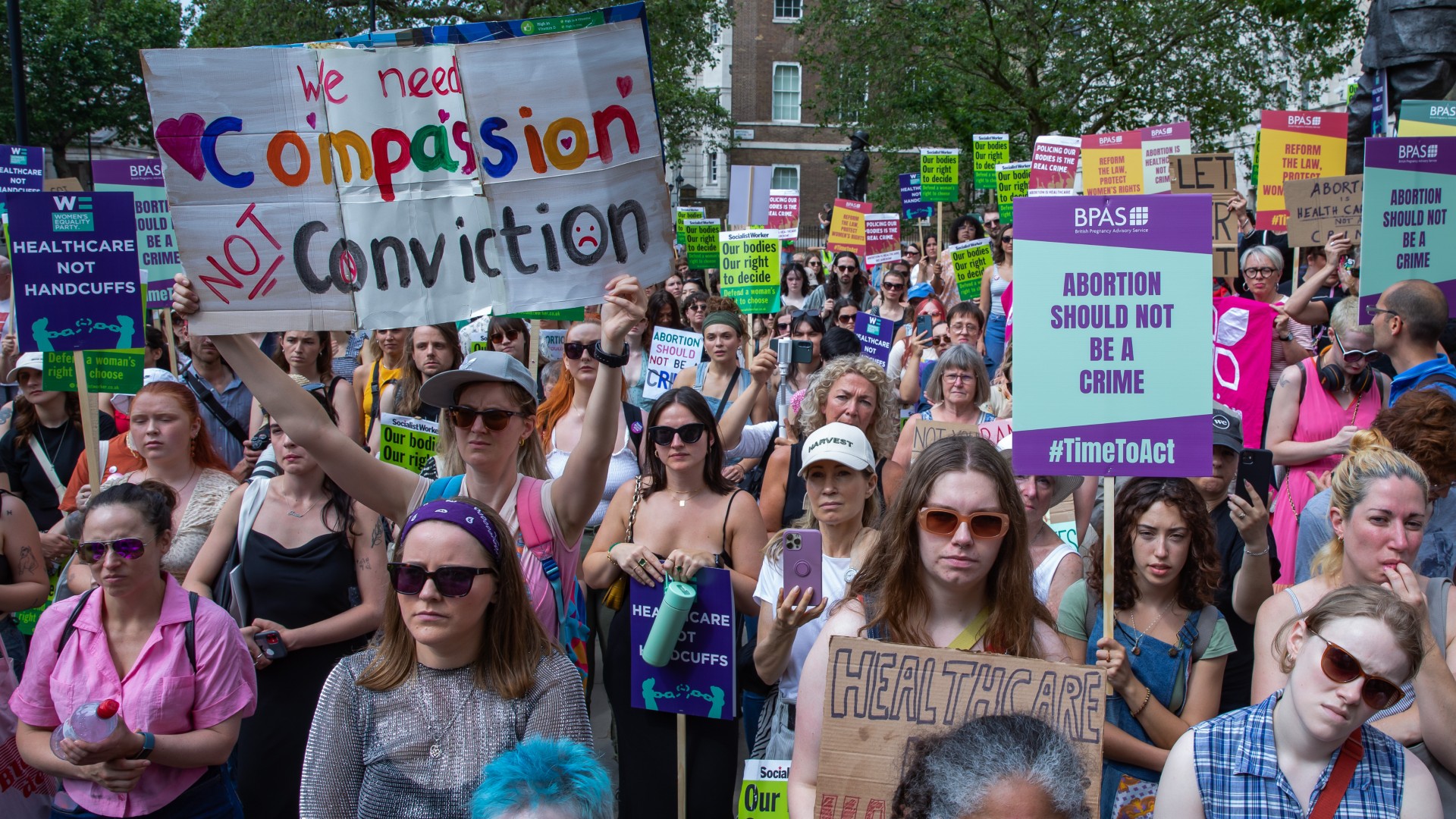 Is the UK about to decriminalise abortion?
Is the UK about to decriminalise abortion?Talking Point A rise in prosecutions has led Labour MPs to challenge the UK's abortion laws
-
 Abortions rise to record level 'due to cost of living'
Abortions rise to record level 'due to cost of living'Speed Read Low-income women face 'heart-breaking' choice, warns abortion charity chief
-
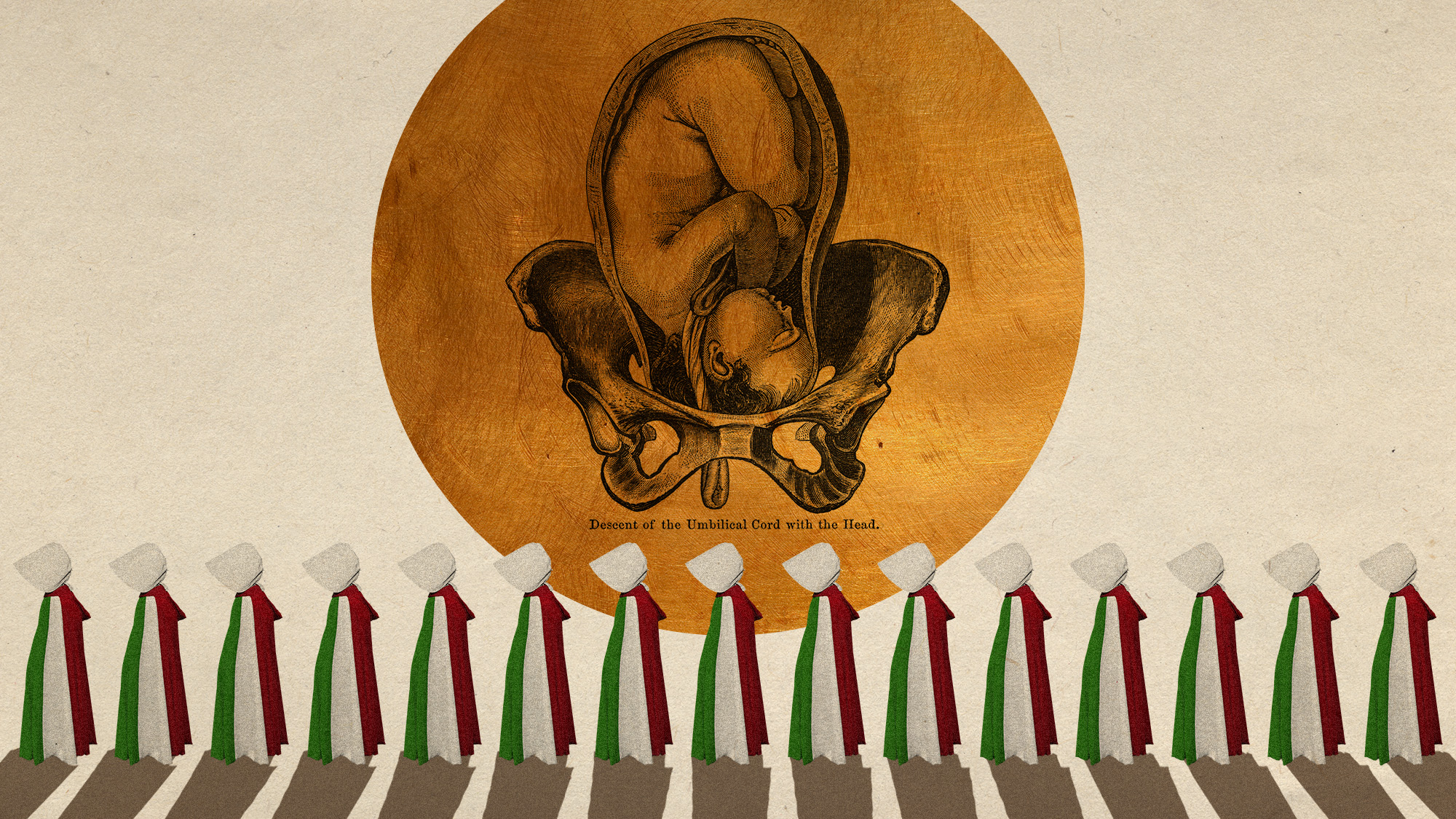 Italian senate passes law allowing anti-abortion activists into clinics
Italian senate passes law allowing anti-abortion activists into clinicsUnder The Radar Giorgia Meloni scores a political 'victory' but will it make much difference in practice?
-
 France enshrines abortion rights in constitution
France enshrines abortion rights in constitutionspeed read It became the first country to make abortion a constitutional right
-
 Will South Africa's genocide case against Israel stop war in Gaza?
Will South Africa's genocide case against Israel stop war in Gaza?Today's Big Question The claim is 'tightly argued' but ICJ's rulings are often ignored
-
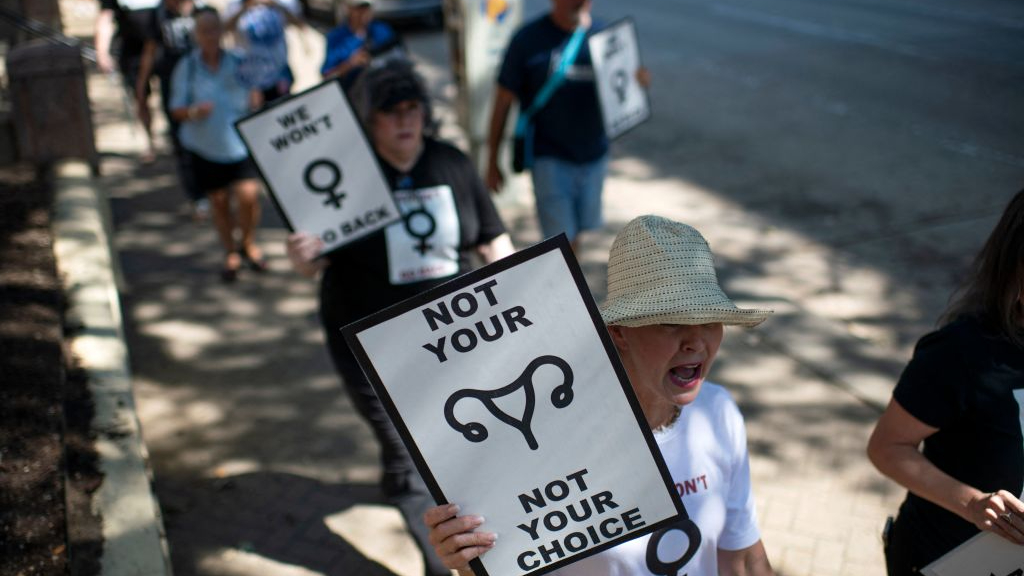 Texas judge approves abortion of nonviable fetus, drawing threat from Texas attorney general
Texas judge approves abortion of nonviable fetus, drawing threat from Texas attorney generalSpeed Read Kate Cox petitioned to terminate her doomed pregnancy, salvaging her uterus and the option to try for more children
-
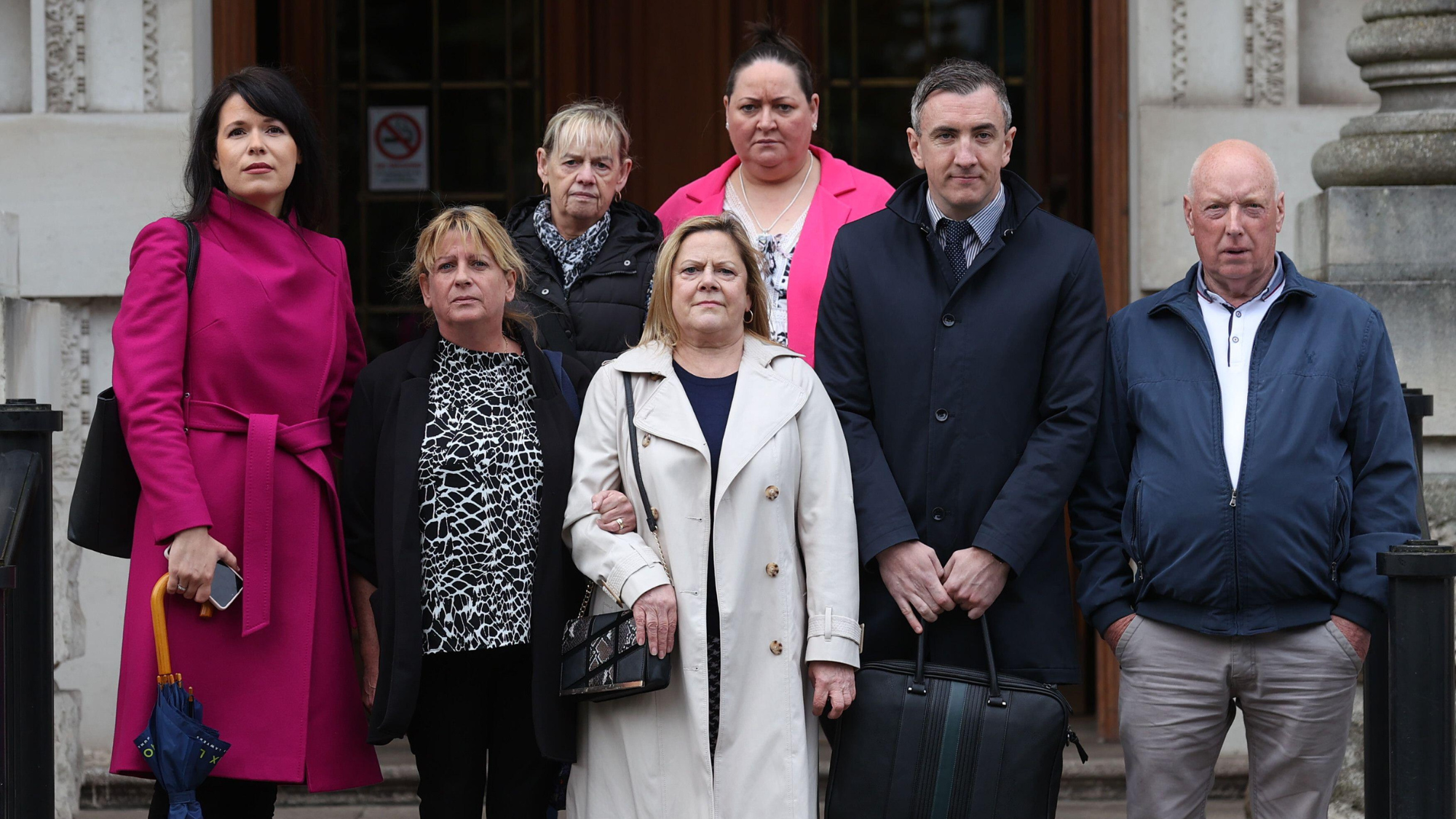 Why the Troubles Act faces a legal challenge in Belfast
Why the Troubles Act faces a legal challenge in BelfastThe Explainer Relatives of victims bring case against controversial legislation to High Court
-
 Ohio voters defeat GOP measure to raise referendum threshold
Ohio voters defeat GOP measure to raise referendum thresholdSpeed Read